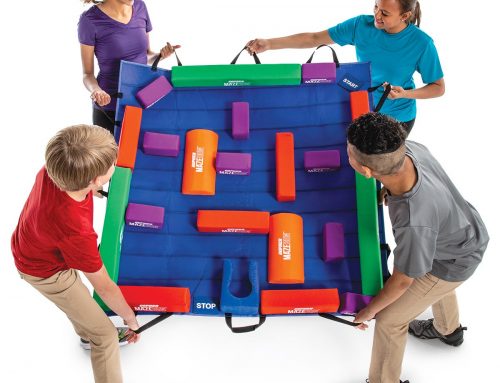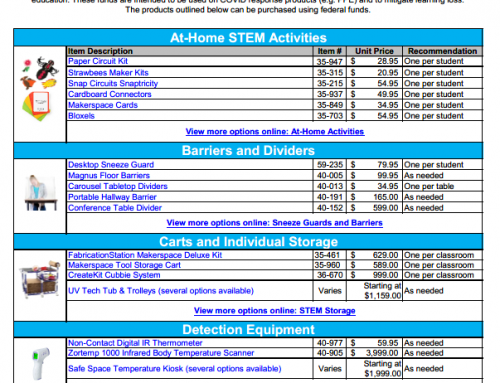There are many reasons to continue your education in education. Yet, for many teachers, these reasons get clouded by bad professional development (PD) experiences. I’m here to tell you that not only is good professional development out there, but it really will make your job better.
Why do PD?

1. Growth Mindset
As teachers, it can be so tempting to continue the status quo in our classrooms. Changing things up from year to year can be exhausting and burdensome. But PD can excite educators into evolving their practice. Just seeing some of the awesome things that other teachers are doing can be enough to fuel the growth mindset. Sometimes all you need is a jumpstart!
2. Student Empathy
We can often lose sight of how difficult it can be to learn something new. Continuing one’s own education can help teachers relate to their students. This not only helps create a classroom culture of growth, but also shows your students that learning is a lifelong process.
3. Education Research
My personal favorite reason to continue my education is a rather nerdy one. I LOVE reading education research. I know this is not for everyone, but I have revelations when reading the latest articles.
Education research is mostly case studies (short, low n-value data in a specific setting). If you find one that replicates your teaching environment, it can be a game changer. Think of that one kid that you just can’t figure out. Now imagine a researcher (who has nothing but time to sit and ponder) cracked the code on that type of student! I’ve had this happen frequently.
4. Free Stuff
One of the motivating factors for attending professional development is the swag. At one conference I just went around gathering all the free pencils I could find for my students. Another time I got into a great conversation with a vendor and ended up with a classroom set of fidget spinners! In an even crazier turn of events, I won a scavenger hunt at a conference and the prize was a 3D printer! It certainly shouldn’t be the driving force for your PD, but it is a notable perk.
What type of PD is best for you?
1. Online PD
First stop, twitter! Make sure to follow educational companies and non-profits on social media. They often offer free mini-PDs or online trainings for educators. These can be a quick and easy first step in jumping on the PD bandwagon. Check out #bitesizedPD for some quick ideas that don’t require you to sit in a room for hours with 20 other educators.
 2. In-school PD
2. In-school PD
The first level of PD is to attend after-school PD offered by your school. Ask your administration if there is anything that they suggest. It might be a schoolwide initiative, a change in curriculum, or an outside company offering a free seminar. Regardless, the school is already paying for it, so you don’t need to worry about funding!
3. In-district PD
If your district involves multiple schools, there may also be opportunities for PD at the district level. This is great because you get a day off from teaching, you get to network with other educators in your district, and (if your principal will let you go) it’s already funded!
4. Conferences
One of my favorite ways to consume PD is to attend conferences. From local to national, they are a fantastic opportunity to consume knowledge. Conferences offer a plethora of information all in one place. You can attend a conference for a certain topic, and find the top teachers, researchers, and companies working in that field. This usually requires some funding, though.
5. Graduate School
Many states will require a master’s degree for teachers eventually, but it is certainly something to think about if you are new to the profession. If your state doesn’t require it, I would still recommend looking into programs online or in your area. I learned so much in my program and concentrated on exactly what I wanted to teach. It is an opportunity to read education research and dive into research yourself!
6. Continued graduate course work
If you already have an advanced degree, you can continue your education at the graduate level. Many schools have Certificates of Advanced Graduate Study (CAGS) with niche coursework for teachers. While it can be difficult to juggle timewise, the benefits are extreme. It is also a great resume builder for those considering moving into an administrative role at their school.
How to get PD funded
1. School budget – just ask!

If you have a good relationship with your principal, just ask! I’ve often been able to go to conferences or take courses simply because it was in the budget. Often, there is money specifically for PD that goes unused by the school. It’s worth a shot.
2. School budget – write a proposal
If your school is more competitive with their PD budget, you may need to write a proposal for your school. This should explain the benefits of the PD for both you and the school, detail your travel plans, and contain a budget breakdown. Steal my proposal here!
3. Write a grant
If your school does not have the funds to send you to PD, you’ll need to write a grant. There are a variety of ways to do this. Many companies like to sponsor teachers furthering their education. You just have to find the right one for your situation. Check out some applications for grants here.
You’ve got this!







Leave A Comment